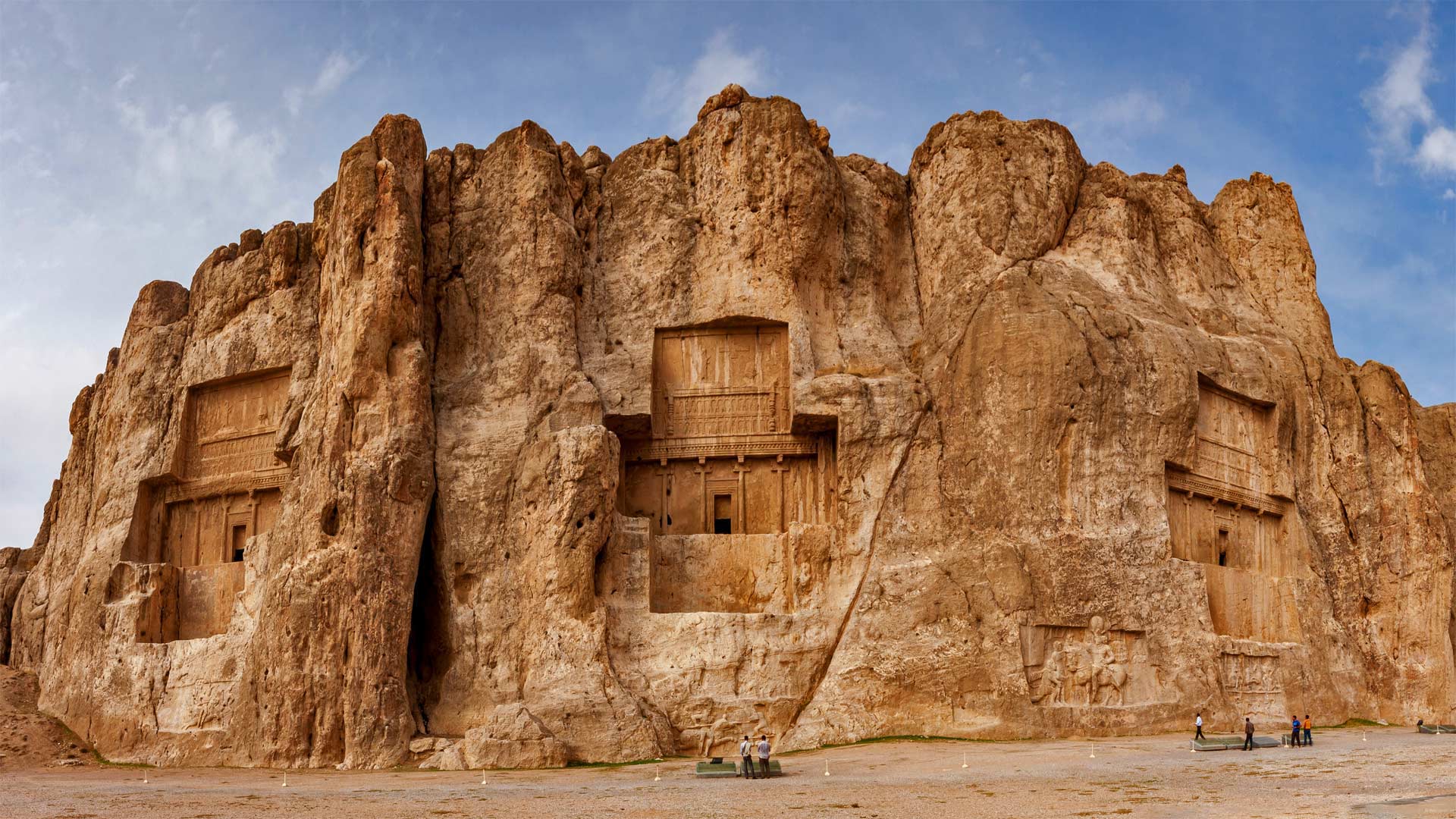纳克什鲁斯塔姆遗址,伊朗波斯波利斯 Naqsh-e Rustam archaeological site near Persepolis, Iran (© mshirani/Shutterstock)

纳克什鲁斯塔姆遗址,伊朗波斯波利斯 Naqsh-e Rustam archaeological site near Persepolis, Iran (© mshirani/Shutterstock)
国际考古日 International Archaeology Day
国际考古日
Naqsh-e Rostam是一座雕刻在伊朗西南部山区的古代墓地,是古代波斯最早繁荣的文明之一的门户。四位阿契美尼德国王的陵墓(你可以在这里看到其中三位)以高高地雕刻在悬崖表面的岩石浮雕为标志。这个遗址及其周围地区对伊朗及其人民的历史具有重大意义。它们也是考古学在理解我们的过去方面所起作用的光辉范例。每年10月的第三个星期六,我们都会停下来庆祝并表彰考古学家作为人类历史解释者的贡献。
墓地是由坟墓和墓地组成的综合体,字面意思是“死者之城”这家离法尔斯省的西拉市很近。其中一座坟墓被铭文确定为大流士一世(又名大流士大帝)的安息之地,其他坟墓被认为是大流士的儿子薛西斯一世、阿尔塔克西斯一世和大流士二世的坟墓,这些人是公元前522-330年阿契美尼德王朝的领导人。纳什赫·罗斯坦也是描绘后来萨珊帝国国王的浮雕之乡,萨珊王朝是7世纪和8世纪穆斯林征服之前的最后一个伊朗帝国。只有几百码远的地方是被称为Naqsh-e Rajab的考古遗址,更多的石雕描绘了三位萨珊王朝国王和一位大祭司。虽然这些文明已经消亡,但它们创造的东西是人类历史的永久记录。
International Archaeology Day
Naqsh-e Rostam is an ancient necropolis carved into the mountains of southwestern Iran, a porthole into one of the earliest civilizations to flourish in ancient Persia. The tombs of four Achaemenid kings (you can see three of them here) are marked by rock reliefs carved high above the ground into the cliff face. This site and the area around it are of huge significance to the history of Iran and its people. They're also a shining example of the role archaeology plays in understanding our past. On the third Saturday of every October, we pause to celebrate and recognize the contributions of archaeologists as interpreters of human history.
A necropolis is a complex of tombs and burial plots, literally translated as a 'city of the dead.' This one is close to the city of Shiraz in Fars Province. One of the tombs is identified by an inscription as being the resting place of Darius I, aka Darius the Great, and the others are believed to be the tombs of Darius' son, Xerxes I, Artaxerxes I, and Darius II, leaders during the Achaemenid dynasty from 522-330 BCE. Naqsh-e Rostam is also home to relief carvings depicting kings of the later Sassanian Empire, the last Iranian empire before the Muslim conquests of the 7th and 8th centuries. Only a few hundred yards away is the archaeological site known as Naqsh-e Rajab, with more rock carvings depicting three Sassanid kings and a high priest. While these civilizations have faded, what they created endures as a permanent record of human history.
评论已关闭